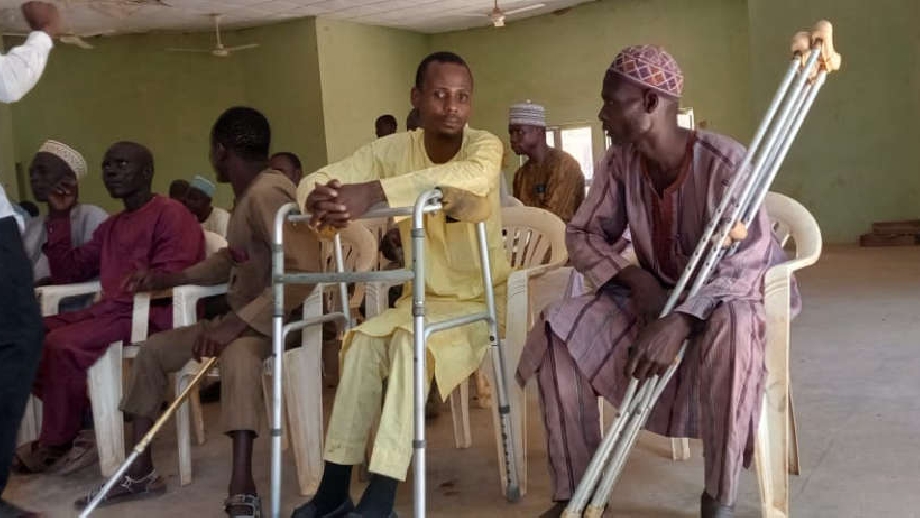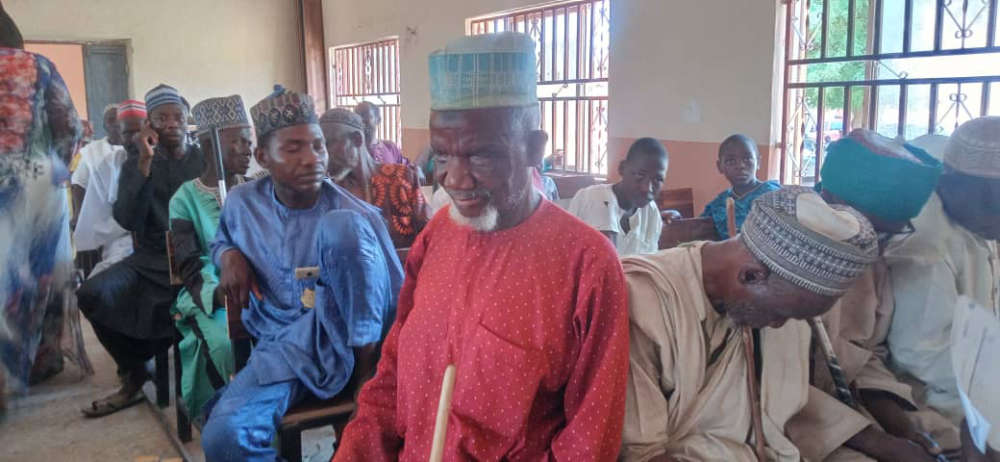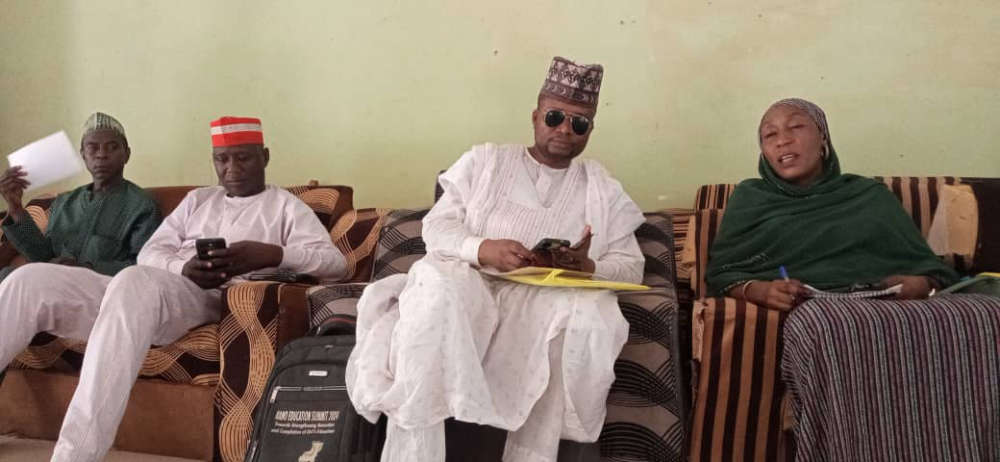
Persons with disabilities (PWDs) in Takai, Karaye, Gabasawa, and Minjibir Local Government Areas of Kano State have expressed the painful exclusion they face in the education sector.
This is despite the clear protections offered by Nigeria’s Discrimination Against Persons with Disabilities (Prohibition) Act, 2018.
Their plights were shared during a two-day town hall meeting organised by the Partnership for Learning for All in Nigeria (PLANE) on 23 and 24th April 2025, in Kano.
The experiences shared paint a grim picture of neglect, ignorance, and discrimination in a system that is legally bound to protect and uplift persons with special needs in Nigeria.
In this special report, Nigeria Info highlights the plight of the deformed in the education system in Kano, calling for swift intervention from the state government.
How Takai PWDs Face Abandonment, Stigmatization
Speaking emotionally at the Takai Local Government Student Association (TASA) hall, Nura Mustapha recounted the heartbreaking story of a young boy abandoned by his father, not due to poverty but because of stigma.
According to him, the teenager lives with a severe physical disability and bladder weakness.
“His father is well known in this community, but he doesn’t want his name to be attached to his son’s, let alone enroll him in a school,” Nura narrated.
Today, he remains under hospital care, far from the support and educational opportunities he deserves.
This tragic trend violates multiple sections of the Discrimination Against Persons with Disabilities (Prohibition) Act, 2018.
Notably, Section 17 of the law mandates that "a person with disability shall have an unfettered right to education without discrimination or segregation."
The law further compels all public educational institutions to ensure that persons with disabilities have equal access to education at all levels.
Yet in Takai, the reality is far from the legal promise.
Nura also highlighted cases where school principals allegedly refuse admission to students with disabilities, citing a lack of state-provided incentives.
“If these children are taken to school, we face problems with the principals of these secondary schools.
“They don’t accept these types of children because they claim that the Kano State government did not give them any incentives,” he added.
This directly contravenes Section 4 of the Act, which prohibits all forms of discrimination against persons with disabilities in any circumstance, including education, and stipulates penalties for offenders.
The law states thus: “A person who contravenes subsection (1) commits an offence and is liable on conviction to a fine of N100,000 or a term of six months imprisonment or both.”
Mallam Jibrin, another speaker and local leader in the blind community, also shared his experience on the barriers faced during his son’s enrollment.
"I tried to enrol my son in secondary school, only to be told that because I am a civil servant, I did not qualify for free education support for children with disabilities."

According to him, despite the child’s disability, he was made to pay school fees, a clear misunderstanding of the free education policy, which covers persons with special needs regardless of parental income status.
Corroborating Jibrin’s position, Sarartu Saleh Kachako noted that the visually impaired and children who can see also face similar problems.
“People don’t come to our aid educationally, and we, their parents, don’t have enough money to pay their school fees. We also have educated children, but they are unemployed,” Saleh added.
This systemic neglect not only discourages parents but prolongs poverty and exclusion among persons with disabilities, something the Prohibition Act was designed to eliminate.
For Ya'u Garba, another resident who spoke emotionally, misinformation cost him his education.
"I grew up believing that people like me (those with deformities) didn’t go to school," he said. "It wasn’t until I met educated blind people that I realised it was a lie. By then, it was too late."
The law further supports that ignorance must not be a barrier: Section 1 explicitly recognises the dignity of persons with disabilities and guarantees them equal rights and opportunities in all spheres of life, including education.
Like Takai, PWDs in Gabasawa Recount Harrowing Experiences
One of the locals in Gabasawa LGA described how he struggled with mobility while pursuing secondary education and applied to multiple institutions before eventually obtaining a diploma in food hygiene.
“Now I can insert drips and inject patients. Disability doesn’t define your future, your belief does,” he said.
Others raised concerns about the harmful stigma attached to disability in the community, arguing that it reinforces marginalisation.
“Disability is not a curse. The real problem is being denied the opportunity. Education will remove the stigma and restore dignity,” another participant stated.
Karaye LGA PWDs Lament Poor Accessibility, Lack of Basic Amenities
In Karaye Local Government Area, PWDs rallied the support of the government and well-to-do individuals, citing severe challenges in mobility, sanitation, and access to educational infrastructure.
Particularly, those with spinal cord injuries narrated their plights.
“Many of us are elderly and cannot move without assistance,” said one participant. “This is my brother; he has to be carried everywhere due to the lack of a wheelchair. How can he even think of going to school?”
She emphasised that while other forms of disability, like the challenges of visual or minor physical impairments, spinal cord injuries are especially limiting without mobility aids.
“Without a wheelchair, life stops. We’re begging our leaders to help us, this is a desperate need.”
Another participant, Umma Umar Muhammad, a student at Anoor Kafar Fada, drew attention to the poor sanitary conditions in her school.
She lamented, “The toilet isn’t usable. It’s just a corner, not even a proper facility,” adding that “given my condition, if I try to use it, I risk soiling my clothes and myself. It’s humiliating.”
She added that accessibility remains a major issue in the school environment. “There’s no structure that supports people with disabilities. We can only access our classrooms for lectures and then return home, we can’t even reach the school offices.”
Visually Impaired Scholar, Spinal Cord Chair Inspires Change
Abdulrazaq Ado Zango, a visually impaired educator and disability advocate, shared his inspiring journey at the town hall, promoting the inclusion of persons with disabilities in education.
Zango, who chairs the Kano Initiative of Persons with Special Needs, recounted how he lost his sight due to glaucoma in 2013 but refused to let blindness define his future.

His pursuit earned him a degree in Early Childhood Education, a master’s in Educational Technology, and he is working toward his PhD.
Ado currently tutors over 100 students in computer studies at the Government Girls Senior Secondary School, proving that disability is not a barrier to achievement.
“If I didn’t go to school, how would all these things happen?” he asked, urging others with disabilities to pursue education and become agents of change in their communities.
Like Zango, the chairman of Spinal Cord Injury Association, Mr Abdulrahman Uba Daushe, also called on the government to prioritise the inclusion of persons with disabilities (PWDs) in Nigeria’s education system.
Daushe, who has been wheelchair-bound for nearly 20 years following an accident, noted that his condition did not deter him from pursuing education.
"I earned my first degree, second degree, and even my MSc while in a wheelchair," he said.
"Most of our lecture halls are on upper floors with no lifts, and the library is in a 10-storey building. I was never able to access throughout my studies," he explained.
PLANE Advocates for Kano Government’s Action on Disability Inclusion in Education
A consultant with the Partnership for Learning for All in Nigerian Education (PLANE), Dr. Grace, has called on the Kano State government to urgently address the exclusion of children with disabilities from the education system.
She described the situation as a violation of the Discrimination Against Persons with Disabilities (Prohibition) Act, 2018.
Speaking in Takai LGA, Dr. Grace emphasized a system where children with disabilities learn alongside their peers without disabilities in the same schools with the necessary support systems.
"Inclusive education is not about segregation," Dr. Grace said. "It promotes socialisation, mutual respect, and better learning outcomes for all children."
She pointed out that barriers such as inaccessible schools, untrained teachers, and a lack of learning aids continue to deny many children with disabilities their right to education.
PLANE’s consultant also highlighted the role of communities in breaking the cycle of poverty through education, noting that parents, traditional leaders, religious figures, and local organisations must work together to ensure no child is left behind.
Kano Government Responds, Expresses Commitment to Inclusive Education
Responding, however, the Kano State Government reaffirmed its commitment to promoting inclusive education and addressing the challenges faced by PWDs across the state.
The Director of Public Enlightenment at the State Ministry of Education, Balarabe Abdullahi Kiru, listed several government initiatives to enhance inclusion and accessibility in the education sector.
Kiru highlighted the ongoing partnership with the World Bank-supported Adolescent Girls Initiative for Learning and Empowerment (AGILE), under which 1,254 schools are being renovated with 135 inclusive schools under construction across the state. Insert
Residents of Takai, Karaye, Gabasawa, and Minjibir are not just lamenting their fate; they want to see and feel the government's actions.
Until then, people like Nura Mustapha, Mallam Jibrin, and Ya'u Garba will continue to wage a silent war against discrimination - a war they should not be fighting if the law were implemented.


